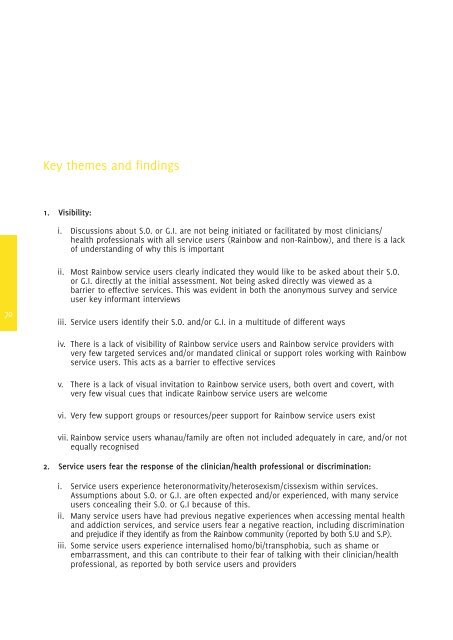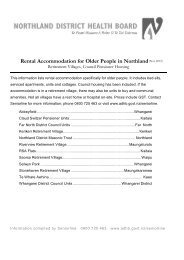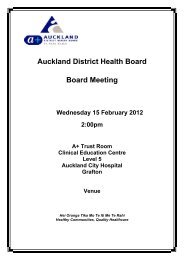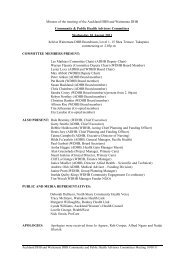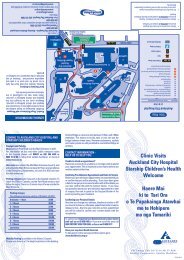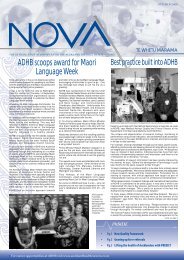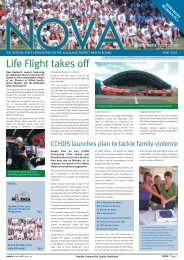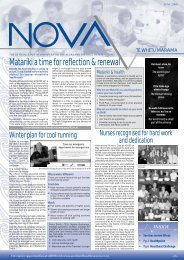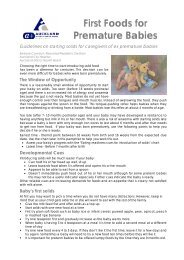Lets talk about sex.... - Auckland District Health Board
Lets talk about sex.... - Auckland District Health Board
Lets talk about sex.... - Auckland District Health Board
Create successful ePaper yourself
Turn your PDF publications into a flip-book with our unique Google optimized e-Paper software.
70<br />
Key themes and findings<br />
1. Visibility:<br />
i. Discussions <strong>about</strong> S.O. or G.I. are not being initiated or facilitated by most clinicians/<br />
health professionals with all service users (Rainbow and non-Rainbow), and there is a lack<br />
of understanding of why this is important<br />
ii. Most Rainbow service users clearly indicated they would like to be asked <strong>about</strong> their S.O.<br />
or G.I. directly at the initial assessment. Not being asked directly was viewed as a<br />
barrier to effective services. This was evident in both the anonymous survey and service<br />
user key informant interviews<br />
iii. Service users identify their S.O. and/or G.I. in a multitude of different ways<br />
iv. There is a lack of visibility of Rainbow service users and Rainbow service providers with<br />
very few targeted services and/or mandated clinical or support roles working with Rainbow<br />
service users. This acts as a barrier to effective services<br />
v. There is a lack of visual invitation to Rainbow service users, both overt and covert, with<br />
very few visual cues that indicate Rainbow service users are welcome<br />
vi. Very few support groups or resources/peer support for Rainbow service users exist<br />
vii. Rainbow service users whanau/family are often not included adequately in care, and/or not<br />
equally recognised<br />
2. Service users fear the response of the clinician/health professional or discrimination:<br />
i. Service users experience heteronormativity/hetero<strong>sex</strong>ism/cis<strong>sex</strong>ism within services.<br />
Assumptions <strong>about</strong> S.O. or G.I. are often expected and/or experienced, with many service<br />
users concealing their S.O. or G.I because of this.<br />
ii. Many service users have had previous negative experiences when accessing mental health<br />
and addiction services, and service users fear a negative reaction, including discrimination<br />
and prejudice if they identify as from the Rainbow community (reported by both S.U and S.P).<br />
iii. Some service users experience internalised homo/bi/transphobia, such as shame or<br />
embarrassment, and this can contribute to their fear of <strong>talk</strong>ing with their clinician/health<br />
professional, as reported by both service users and providers


